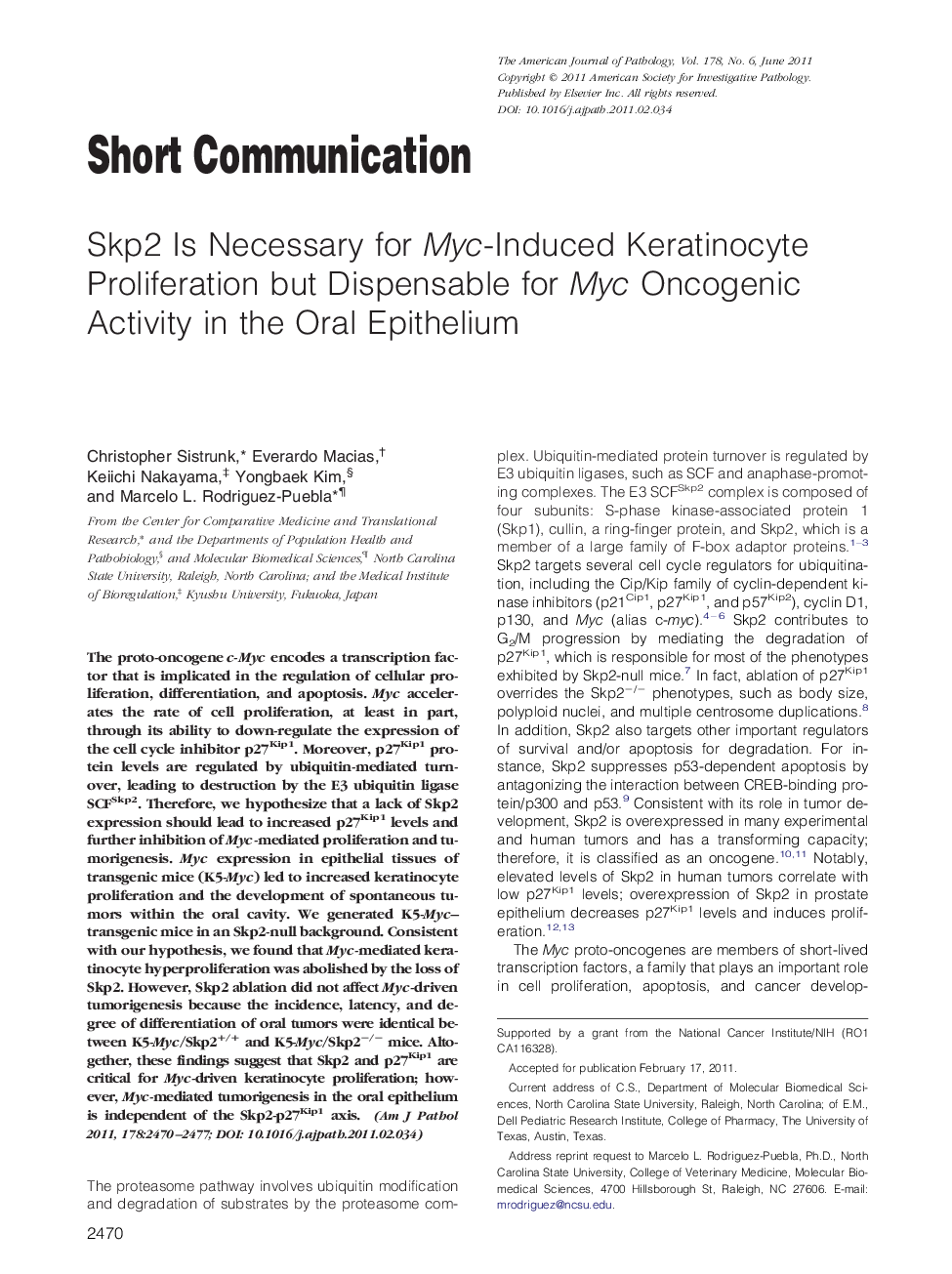| Article ID | Journal | Published Year | Pages | File Type |
|---|---|---|---|---|
| 5939440 | The American Journal of Pathology | 2011 | 8 Pages |
Abstract
The proto-oncogene c-Myc encodes a transcription factor that is implicated in the regulation of cellular proliferation, differentiation, and apoptosis. Myc accelerates the rate of cell proliferation, at least in part, through its ability to down-regulate the expression of the cell cycle inhibitor p27Kip1. Moreover, p27Kip1 protein levels are regulated by ubiquitin-mediated turnover, leading to destruction by the E3 ubiquitin ligase SCFSkp2. Therefore, we hypothesize that a lack of Skp2 expression should lead to increased p27Kip1 levels and further inhibition of Myc-mediated proliferation and tumorigenesis. Myc expression in epithelial tissues of transgenic mice (K5-Myc) led to increased keratinocyte proliferation and the development of spontaneous tumors within the oral cavity. We generated K5-Myc-transgenic mice in an Skp2-null background. Consistent with our hypothesis, we found that Myc-mediated keratinocyte hyperproliferation was abolished by the loss of Skp2. However, Skp2 ablation did not affect Myc-driven tumorigenesis because the incidence, latency, and degree of differentiation of oral tumors were identical between K5-Myc/Skp2+/+ and K5-Myc/Skp2â/â mice. Altogether, these findings suggest that Skp2 and p27Kip1 are critical for Myc-driven keratinocyte proliferation; however, Myc-mediated tumorigenesis in the oral epithelium is independent of the Skp2-p27Kip1 axis.
Related Topics
Health Sciences
Medicine and Dentistry
Cardiology and Cardiovascular Medicine
Authors
Christopher Sistrunk, Everardo Macias, Keiichi Nakayama, Yongbaek Kim, Marcelo L. Rodriguez-Puebla,
